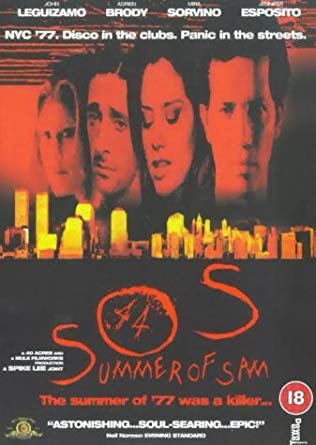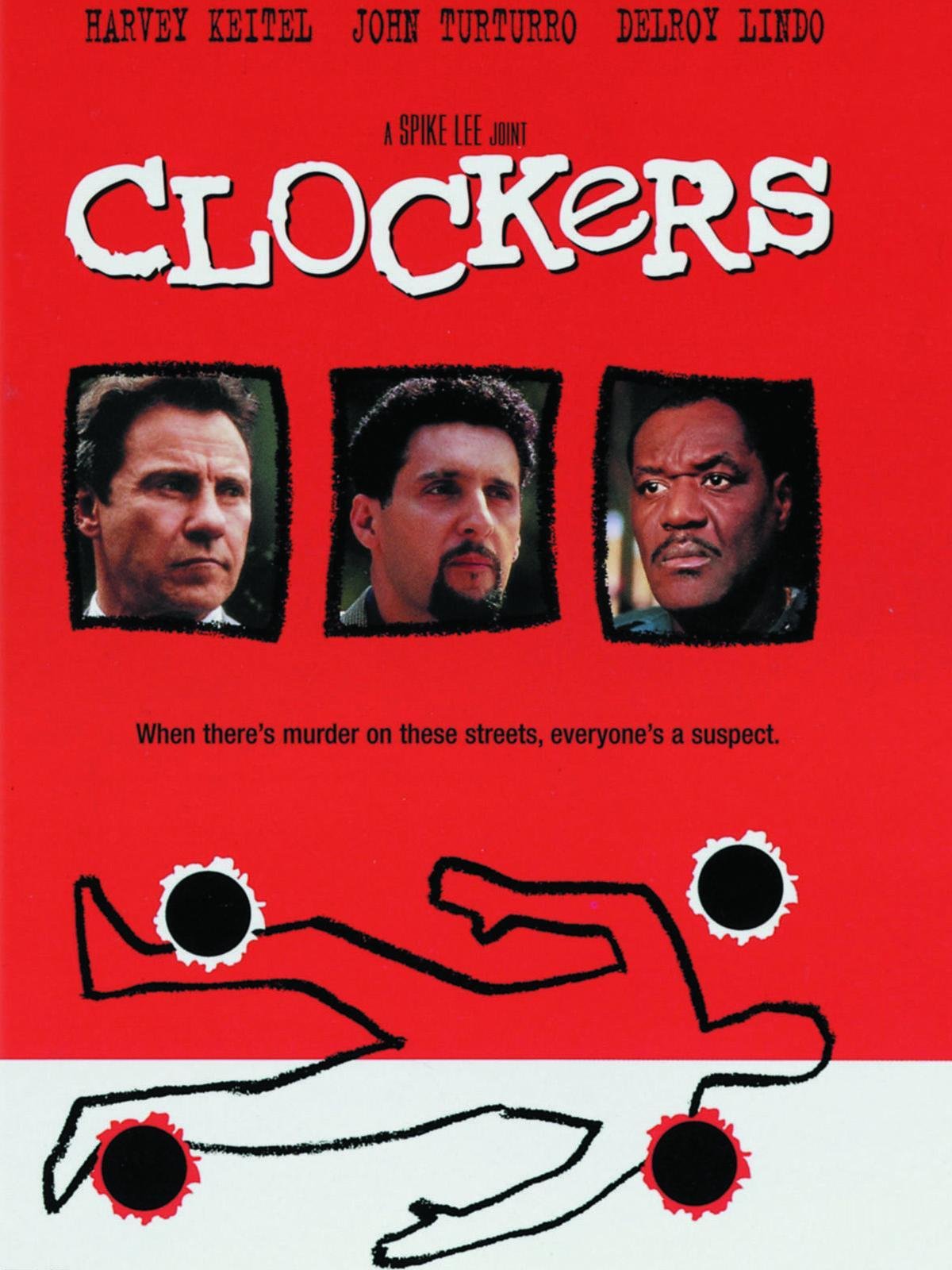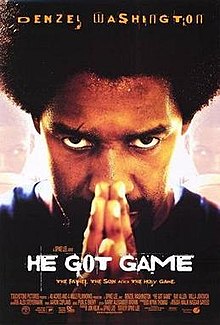
Happy Friday POU!
We continue our look at films written and directed by Spike Lee.

Crooklyn is a 1994 semi-autobiographical film co-written and directed by Spike Lee.
Lee and his siblings Cinque Lee and Joie Lee co-wrote this nostalgic but unglamorized look at a family growing up in Bedford-Stuyvesant neighborhood in Brooklyn in the 1970s, inspired by their own childhood. Woody Carmichael (Delroy Lindo) is a jazz musician whose career is in a slump; he once made a good living as a session musician, but he has moved away from it to devote himself to more serious music, a choice that has not worked out well from a financial standpoint. His wife Carolyn (Alfre Woodard) works as a school teacher to keep food on the table. The Carmichaels have five children, a bright and introspective daughter named Troy (Zelda Harris) and four sons with a habit of causing trouble, and they all share an apartment in a brownstone in Brooklyn.
Crooklyn follows the Carmichaels as the kids learn the funny and painful lessons of growing up, Mom and Dad balance their love for each other against the financial and personal difficulties of the creative life, and they all try to get along with the often eccentric neighbors on their block.
New Yorkers selected the film for free, simultaneous screenings across all five New York City boroughs as part of the 2017 One Film, One New York contest.

Clockers is a 1995 American crime drama film co-written and directed by Spike Lee. It is an adaptation of the 1992 novel of the same name by Richard Price, who also co-wrote the screenplay with Lee. The film stars Harvey Keitel, John Turturro, Delroy Lindo, and Mekhi Phifer in his debut film role.
The movie takes place mostly in and around a New York housing project where Strike and his friends work as “clockers” – the lowest link in the drug supply chain. They work “around the clock” from benches and street corners, selling small packages to young white men who somehow know where to come to buy them.
The clockers live in a symbiotic relationship with narcotics cops; it’s as if they depend on each other to define their roles. In an early scene, the cops strip-search the clockers on the street, and we realize that if it is demeaning to be strip-searched, it is equally demeaning to be the searcher.
Lee has said that gun control and black-on-black crime are the two great unsolved issues facing African Americans. In “Clockers,” these are his subjects.
Cheap handguns make death the result of situations that otherwise would be soon forgotten. Drugs are not a problem so much as a way of life; the central black characters in the movie never use drugs themselves, but trade in them, with death as a cost of doing business.
Some of the white cops make racist statements, but their dialogue is like background noise. Late in the film, as another body is being zipped into a plastic bag, a cop, off camera, crudely refers to the projects as “self-cleaning ovens.” The unintended implication is that these young men are practicing genocide on themselves.

He Got Game is a 1998 American sports drama film written, produced and directed by Lee and starring Denzel Washington. This is the third of four film collaborations between Washington and Lee.
Washington portrays Jake Shuttlesworth, father of the top-ranked basketball prospect in the country, Jesus Shuttlesworth, played by NBA star Ray Allen. Jake, in prison for killing his wife, is released on parole for a week by the state’s governor to persuade his son to play for the governor’s alma mater in exchange for a much reduced prison sentence.
A flashback makes it clear that Jesus’ mother (Lonette McKee) was accidentally killed by Jake during a violent family fight. After Jake went to prison, the resentful Jesus was left alone to raise his sister Mary (Zelda Harris). Now several colleges are offering Jesus scholarships, and montages satirize the manner in which young athletes are wooed by educators and coaches across the country. However, Jake will soon be back behind bars if he can’t get Jesus to sign with Big State within the week. Meanwhile, the greed of other people associated with Jesus begins to surface.
By the end of the film, it seems there’s no one in Jesus’ life that does not expect some kind of benefit from their relationship with him. His girlfriend, his coach, his uncle, even his own father are all after something, trying to cash in on the their acquaintance with the basketball phenom.
Except his father is not after money, or fancy car. He wants freedom. Freedom to do what? As we see Jake throughout the film, he clearly wants to atone for his crime. He wants the forgiveness of his son, who he admits that he pushed away as a child when pushing him to excel at basketball. In the climatic showdown between father and son on the court, Jake is clearly outmatched and stands no chance, but at this point you can tell he does not care. He forsakes his chance at freedom to take away the anger and hatred out of his son. He uses the chance to remind Jesus to not become him.
At the end of the film when Jesus announces his commitment to Big State as well saying his family’s prayers go out to his father. The ending never elaborates on why Jesus makes this decision, but it speaks about spiritual desire. Jesus was free to make any decision, which would have brought him money, women, means to begin a new life, but he decides to make the decision that fittingly frees both himself and his father of their emotional shackles.

Summer of Sam is a 1999 American crime thriller film about the Son of Sam serial murders and the effect on a group of fictional residents of an Italian-American neighborhood in the Bronx in the late 1970s. Although the killer David Berkowitz, his murders, and the investigation are shown in the film, the main focus is on two young men from the neighborhood: Vinny (John Leguizamo), whose marriage is faltering due to his cheating, and Ritchie (Adrien Brody), Vinny’s childhood friend who has embraced punk fashion and music. The murder investigation and other contemporary events, such as the New York City blackout of 1977 and the New York Yankees‘ winning season, provide a backdrop to the stories of Vinny, Ritchie, and their families and friends.
During the summer of 1977, a killer known as the Son of Sam keeps all of New York City on edge with a series of brutal murders. The philandering Vinny unwittingly almost becomes a victim of the psychopath, and soon he and numerous people in his orbit — including his wife, Dionna (Mira Sorvino), his punk-rocker friend, Ritchie (Adrien Brody), and aspiring porn star Ruby (Jennifer Esposito) — are trying to figure out the identity of the killer, before it’s too late.
Throughout the film, Lee appears as a television reporter offering Greek chorus-style commentary on the proceedings. Late in the movie, the newscaster interviews a bunch of black Bedford-Stuyvesant residents for a “darker perspective” on the Son of Sam case. One woman thanks God that it’s a white man who has been killing all these white people and not a brother.
